The Ultimate Guide to Dental Hygiene Tips in Tbilisi with Smilehub.ge
The Importance of Dental Hygiene
As a wise person once said, “A healthy mouth is the gateway to a healthy body.” It’s true! Our mouths are one of the most important and frequently used parts of our bodies. They help us eat, speak, breathe, and even express emotions.
Therefore, it’s important to take good care of our teeth and gums. Dental hygiene is a crucial aspect of maintaining overall health and wellbeing.
Dental hygiene involves the practice of keeping one’s mouth clean and free from disease or infection. It includes activities such as brushing teeth twice a day, flossing at least once a day, using mouthwash regularly, eating a balanced diet that promotes oral health, and visiting the dentist for regular check-ups and cleanings.
Smilehub.ge: Your Resource for Finding Dentists in Tbilisi
If you’re looking for dental services in Tbilisi, Smilehub.ge is an online directory that can help you find dentists and dental clinics easily. The website lists hundreds of dentists across Tbilisi with details about their location, opening hours, services offered, reviews from other patients etc.
Smilehub.ge has made it easy for anyone to find dental services in Tbilisi without having to spend hours searching through directories or relying on word-of-mouth recommendations from friends. Whether you need a general check-up or require specialized treatment like braces or cosmetic procedures Smilehub.ge has got you covered.
– neglecting your dental hygiene can lead to serious health problems like tooth decay and gum disease which can spread throughout your body causing issues beyond just oral health. So take good care of your teeth by following daily routines including brushing twice daily along with flossing using mouthwash regularly; eating foods that promote oral health; seeking expert advice from qualified dentists listed on smilehub.ge when necessary!
Dentists In Tbilisi, Georgia
Eteri Aleksandria
District : Tsereteli avenue
Tea Qitoshvili
District : Dighomi
Nana Guluashvili
District : Ortachala
Giorgi Tskalobovi
District : Isani
Professor
District : Avlabari
Daily Dental Hygiene Routine
Brushing Techniques and Tips
Brushing your teeth is the foundation of a good oral hygiene routine. It’s important to brush at least twice a day for two minutes each time. Make sure you’re using a soft-bristled toothbrush that’s in good condition and replace it every three to four months.
To get the most out of your brushing, angle your brush 45 degrees towards the gumline and use circular motions to clean all surfaces of your teeth. When brushing, be sure not to apply too much pressure as this can damage your gums or cause them to recede.
Use light, gentle strokes instead. Remember to brush the inside surfaces of your front teeth, as well as your tongue (or use a tongue scraper), which can harbor bacteria that causes bad breath.
Flossing Techniques and Tips
Flossing helps remove plaque and food particles from between teeth where toothbrush bristles can’t reach. To floss properly, break off about 18 inches of dental floss and wrap it around both index fingers leaving a few inches of floss in between.
Gently slide the floss up and down between each tooth, being careful not to snap it into your gums. If traditional dental floss doesn’t work for you, try a water flosser which uses pressurized water streams to clean between teeth or interdental brushes which are thin brushes that fit easily between teeth.
Mouthwash Usage and Benefits
Mouthwash is an additional step you can take after brushing and flossing to help kill germs that cause bad breath while also helping prevent cavities and gum disease. Mouthwash can be used daily but should never replace brushing or flossing.
When using mouthwash, swish it around in your mouth for about 30 seconds before spitting it out and avoid eating or drinking anything for about 30 minutes afterward. Look for mouthwashes that contain fluoride which can help strengthen tooth enamel, or mouthwashes that are alcohol-free if you have sensitive gums or teeth.
By following these daily dental hygiene tips, you can keep your teeth and gums healthy, prevent gum disease and tooth decay, and maintain fresh breath. Remember to brush properly twice a day, floss daily, and use mouthwash as an additional tool for maintaining a healthy smile.
Foods that Promote Healthy Teeth and Gums
When it comes to maintaining good dental hygiene, your diet plays a significant role. Eating the right foods can help promote healthy teeth and gums. Calcium-rich foods like milk, cheese, and yogurt are great for strengthening your teeth.
Calcium helps to remineralize teeth by replenishing minerals that have been lost due to acids in our diets. Consuming crunchy fruits and vegetables like apples, carrots, and celery can also help clean your teeth by acting as natural toothbrushes.
Another important nutrient for oral health is Vitamin D. This vitamin is essential for calcium absorption in the body. Foods rich in Vitamin D include fatty fish like salmon, tuna, egg yolks, fortified cereal/milk/beverages among others.
Green tea has been shown to have beneficial effects on oral health as well. Green tea contains catechins which have antioxidant properties that can help reduce inflammation and fight harmful bacteria in the mouth.
Foods to Avoid or Limit
While some foods promote healthy teeth and gums, others should be avoided or limited to prevent tooth decay and other dental issues. Sugary drinks like soda, juice with added sugars, sports drinks etc., are very damaging as they contain a lot of sugar which feeds harmful bacteria in the mouth leading plaque formation on the surface of teeth. Sticky candies like gummy bears or caramels are some of the worst culprits because they stick to your teeth long after you’ve finished eating them thus causing prolonged exposure of sugar on tooth surface leading to enamel erosion over time.
It’s also important to limit acidic foods such as citrus fruits and vinegar-based dressings/sauces as they could cause acid erosion which weakens tooth enamel. By being mindful of what you eat/drink (and how frequently), you can help protect your oral health while still enjoying a variety of delicious food and drink options.
The Importance of Prevention: Common Dental Issues
Nobody likes to think about dental problems, but unfortunately, they are quite common. By practicing good oral hygiene habits and making regular visits to the dentist, we can prevent many common dental problems from occurring. Here are some of the most common dental issues, their causes, symptoms, and helpful prevention tips.
Tooth Decay: Causes, Symptoms, Prevention Tips
Tooth decay is one of the most common dental problems. Tooth decay occurs when bacteria in your mouth produce acid that erodes tooth enamel.
Some of the main symptoms of tooth decay include sensitivity to hot or cold foods or drinks, pain when chewing and visible holes or pits in your teeth. The best way to prevent tooth decay is by following a strict oral hygiene routine.
Brushing twice a day with fluoride toothpaste and flossing once per day will help remove bacteria from your teeth and gums. Additionally, reducing your intake of sugary foods and drinks can also help prevent tooth decay.
Gum Disease: Causes, Symptoms, Prevention Tips
Gum disease is another common dental problem that can be easily prevented through good oral hygiene habits. Gum disease occurs when bacteria in plaque build-up on teeth release toxins that cause inflammation in the gums.
Some of the main symptoms of gum disease include redness and swelling in the gums, bleeding during brushing or flossing and persistent bad breath. To prevent gum disease from occurring it’s important to brush twice daily with fluoride toothpaste for at least two minutes each time you brush.
Flossing daily will also help remove plaque buildup between teeth where a brush cannot reach. visiting your dentist regularly for checkups will allow them to spot any developing issues before they become bigger problems.
Bad Breath: Causes & Prevention Tips
Bad breath can be caused by many factors such as poor oral hygiene, diet, smoking or underlying medical conditions. Some of the most common causes of bad breath include dry mouth caused by medication, poor dental hygiene or food particles that become trapped in your teeth and gums.
Preventing bad breath is as simple as practicing good oral hygiene habits. Brushing your teeth twice daily with fluoride toothpaste and flossing once per day can help remove food particles from your mouth that cause bad breath.
Additionally, drinking plenty of water and avoiding foods with strong odors like garlic and onions can help keep your breath smelling fresh throughout the day. By following a regular oral hygiene routine including brushing twice daily with fluoride toothpaste and flossing once per day, you can prevent many common dental problems such as tooth decay and gum disease.
Additionally visiting your dentist regularly for check-ups will allow them to spot any developing issues before they become bigger problems. Don’t forget to also practice good dietary habits to promote healthy teeth and gums!
Special Considerations for Children’s Dental Health
As parents, we want our children to grow up healthy and happy. One important aspect of their overall health is their oral hygiene. Good dental habits start at a young age, and it’s crucial to help your children develop these habits early on to ensure a lifetime of healthy teeth and gums.
Importance of Early Dental Care
It’s recommended to take your child to the dentist by the age of one or when their first tooth appears. This early visit allows the dentist to identify any potential issues and provide guidance on how to care for your child’s teeth properly. Additionally, regular check-ups will help catch any problems before they become more significant issues that could result in costly treatments later on.
Poor oral hygiene can lead to cavities, gum disease, and other dental problems that can be painful for your child. They may have difficulty eating or speaking and could experience anxiety related to dental procedures if they haven’t had regular check-ups before.
Tips for Parents on Promoting Good Oral Health Habits in Children
Here are some tips for parents on promoting good oral health habits in children:
- Show them how it’s done: Brush your teeth together as a family. This will send a message that everyone needs to brush twice a day.
- Educate them: Teach children about keeping their teeth clean through using fun games, books or videos about dental hygiene.
- Limit sugary foods & beverages: Reduce sugary snacks/drinks in the diet as sugar increases bacteria growth causing tooth decay.
- Motivate them: Create an incentive system by rewarding good brushing and flossing with something fun like stickers or small treats.
- Maintain their brushing schedule: Make sure your child brushes for two minutes, twice a day. Use a timer or play a song to make it more fun.
By implementing these tips and making dental hygiene fun, you can help your child develop good oral health habits that will last them a lifetime!
Advanced Dental Care Options
Teeth Whitening: Brighten Your Smile
Everyone wants a bright, white smile. It can be an instant confidence booster and make you feel great about yourself.
Teeth whitening is a popular option for achieving a brighter smile, and there are various treatments available. One option is in-office teeth whitening, which uses a high concentration of hydrogen peroxide gel that is applied to the teeth and activated with a special light.
Another option is take-home teeth whitening kits that use custom-fitted trays and a lower concentration of hydrogen peroxide gel. Both options can produce noticeable results in as little as one treatment.
However, it’s important to note that teeth whitening may not be suitable for everyone. If you have sensitive teeth or gum disease, it’s best to consult with your dentist before undergoing any treatment.
Orthodontics: Straighten Your Teeth
Crooked or misaligned teeth can cause discomfort and affect your smile’s appearance. Orthodontic treatment is an effective way to straighten your teeth and improve your bite. There are several types of braces available, including metal braces, ceramic braces, lingual braces (attached to the back of the teeth), and clear aligners like Invisalign.
Each type has its advantages, but it ultimately depends on the individual case and the patient’s preference. Your dentist will evaluate your condition and recommend the best course of action.
Restorative Dentistry: Repair Damaged Teeth
Sometimes our teeth need more than just cosmetic improvements – they may need repairs due to damage or decay. Restorative dentistry offers solutions for repairing damaged or missing teeth. There are several types of procedures available depending on the extent of damage:
– Fillings: used to repair cavities caused by tooth decay – Crowns: used to cover damaged or broken teeth and restore their shape and function
– Bridges: used to replace missing teeth by attaching a prosthetic tooth to adjacent healthy teeth – Implants: a more permanent solution for replacing missing teeth, which involves placing an artificial root in the jawbone and attaching a prosthetic tooth
Restorative dentistry can help improve your oral health and restore your smile’s appearance. Your dentist will evaluate your condition and recommend the best treatment option.
Conclusion
It is essential to prioritize dental hygiene to maintain good oral health. Neglecting dental care can result in a variety of problems, including gum disease, tooth decay, and bad breath. By implementing a daily dental hygiene routine that includes brushing, flossing and mouthwash usage, you can prevent these issues and keep your mouth healthy.
Diet also plays a vital role in oral health. Eating foods rich in calcium and vitamins is essential for strong teeth and gums.
Conversely, sugary drinks and sticky candies can harm your teeth by creating an environment conducive to bacterial growth. Limiting these types of food can help prevent tooth decay.
For children’s dental health, early care is crucial. Parents should begin promoting good oral health habits as soon as their child has teeth.
This includes regularly scheduled checkups with a dentist or pediatric dentist trained in children’s dental care. Advanced dental care options such as teeth whitening, orthodontics and restorative dentistry are available for those looking to enhance their smile or address specific issues.
Consulting with a dentist or specialist can help determine which option is best suited for your needs. Remember that prioritizing your dental hygiene not only benefits your oral health but also impacts overall physical well-being.
Regular checkups with a dentist or specialist should be scheduled every six months to ensure optimal oral health. By incorporating the tips mentioned above into your daily routine, you are taking proactive measures towards maintaining good oral hygiene and keeping your smile healthy for years to come!


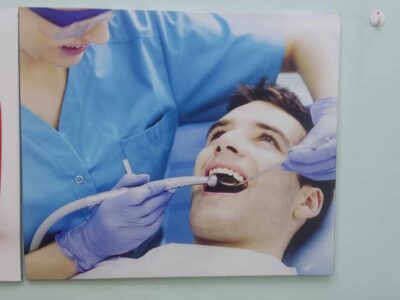




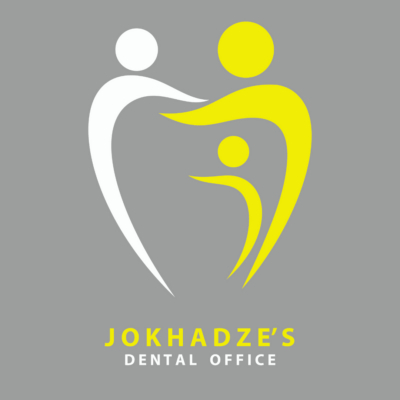
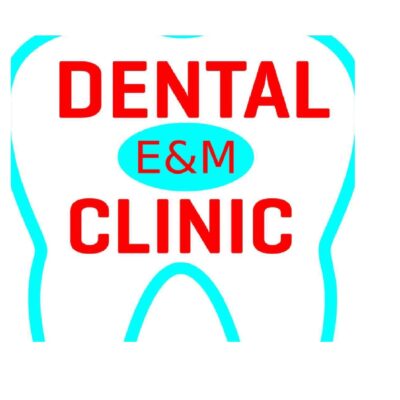
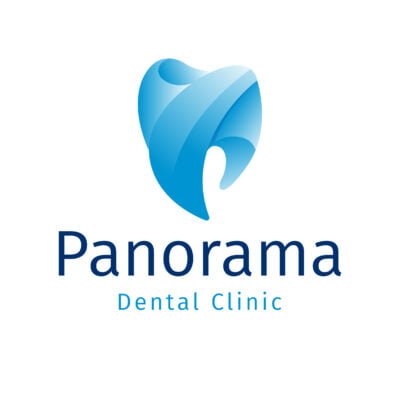
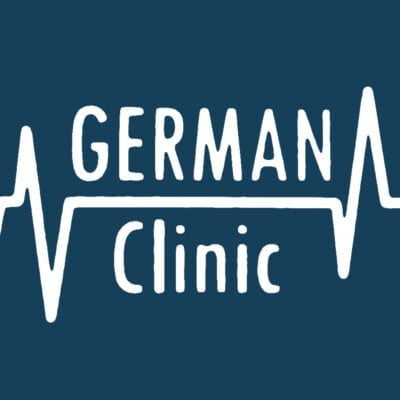

Comments